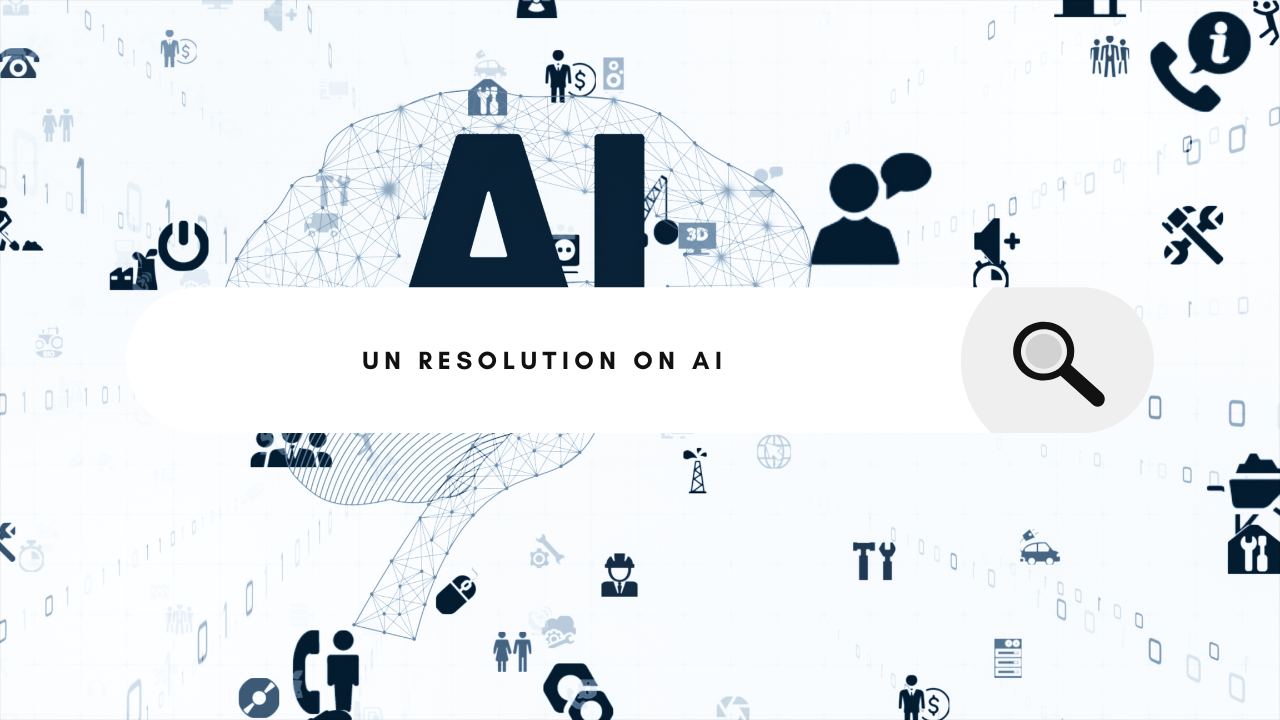Overview: On March 21, 2024, the United Nations General Assembly (UNGA) unanimously adopted its first-ever global resolution on Artificial Intelligence (AI). This landmark resolution, proposed by the United States and cosponsored by 123 countries including China, Russia, and Cuba, sets a foundational framework for the international community to harness AI responsibly, protect human rights, and bridge the digital divide between nations.
Resolution Details:
- Unanimous Adoption: The resolution was adopted without a vote, emphasizing global unity in promoting human rights in the realm of AI.
- Human Rights and AI: It underscores the need for protecting personal data and monitoring AI systems to prevent abuses and risks associated with emerging technologies.
Objectives and Significance:
- Support for UN SDGs: The resolution aligns the use of AI with the achievement of the United Nations Sustainable Development Goals (SDGs) by 2030, targeting improvements in global hunger, health, education, and gender equality.
- Bridging the Digital Divide: It focuses on eliminating disparities by ensuring that developing countries have equal access to AI technologies, which can aid in disease detection, flood prediction, and workforce training among other benefits.
Global AI Legislation Context:
- European Union AI Act of 2024: Just prior to the UNGA resolution, on March 13, 2024, the European Union passed the world’s first comprehensive AI legislation, which regulates AI applications including biometric authentication and aims to safeguard fundamental rights against AI-induced threats such as deepfakes.
- International AI Framework: In November 2023, the USA, the UK, and over a dozen other nations introduced the first international framework to secure AI technologies from misuse, promoting systems that are “secure by design.”
UN and AI Global Leadership:
- Secretary-General: Antonio Guterres from Portugal
- UN Headquarters: New York, USA
- Establishment: 1945
- Member Countries: 193
Conclusion: This UNGA resolution represents a significant step towards creating a coherent global stance on AI, focusing on ethical standards, human rights protection, and equitable technology access. It not only highlights the potential of AI in advancing public good and achieving the SDGs but also sets a precedent for future international agreements on technological governance.


